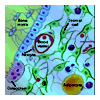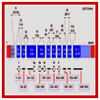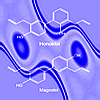 |
||||||||||
Updated: September 10, 2025
Opinion: What Say You, Dr. Expert?
Viewpoints from Noted CLL Experts
Making Sensible Decisions About Stem Cell Transplants
 The clinical research community is slowly coming to grips with the question of when a stem cell transplant makes sense in CLL. The mortality and GVHD risks associated with transplants are definite deterrents but there are substantial survival risks, too, in not taking definitive action when faced with aggressive, poor-prognostic or refractory disease. Four of our favorite CLL experts from major research centers have been generous in sharing their personal viewpoints on the question. You can read their opinions in our article, "What Say You, Dr. Expert?" (9/10/07)
The clinical research community is slowly coming to grips with the question of when a stem cell transplant makes sense in CLL. The mortality and GVHD risks associated with transplants are definite deterrents but there are substantial survival risks, too, in not taking definitive action when faced with aggressive, poor-prognostic or refractory disease. Four of our favorite CLL experts from major research centers have been generous in sharing their personal viewpoints on the question. You can read their opinions in our article, "What Say You, Dr. Expert?" (9/10/07)
Steroid-Campath Combinations
An Expert Looks at Therapies for p53 Defective CLL
A Sledgehammer To Be Used Wisely
 A defect in the p53 gene is a poor prognostic marker and predicts aggressive disease.
Patients who have this defect tend to respond poorly to standard chemotherapy. Finding
new and better ways of treating CLL patients with p53 defects is therefore a major
priority in CLL clinical research. In his article,
Steroid-Campath Combinations, Dr. Andrew Pettitt of the Royal Liverpool University
Hospital evaluates agents that have promise in this area and addresses the important
questions of when to treat such patients and how far to go with the treatment. (8/31/06)
A defect in the p53 gene is a poor prognostic marker and predicts aggressive disease.
Patients who have this defect tend to respond poorly to standard chemotherapy. Finding
new and better ways of treating CLL patients with p53 defects is therefore a major
priority in CLL clinical research. In his article,
Steroid-Campath Combinations, Dr. Andrew Pettitt of the Royal Liverpool University
Hospital evaluates agents that have promise in this area and addresses the important
questions of when to treat such patients and how far to go with the treatment. (8/31/06)
New Therapeutic Agent
Honokiol: An Interview with the Experts
We Talk to Researchers at Harvard and Emory
 Following up on our review of a recent important paper on the
possible use of honokiol from magnolia bark extract in CLL therapy,
we contacted the researchers to get the inside scoop. This compound
has the potential for significant efficacy in CLL, and its use in
traditional Chinese & Japanese medicine suggests few adverse
effects. Dr. David Frank of Harvard Medical School and Dr. Jack
Arbiser of Emory School of Medicine answer some of the questions
that interest us in this
email interview. (6/8/05)
Following up on our review of a recent important paper on the
possible use of honokiol from magnolia bark extract in CLL therapy,
we contacted the researchers to get the inside scoop. This compound
has the potential for significant efficacy in CLL, and its use in
traditional Chinese & Japanese medicine suggests few adverse
effects. Dr. David Frank of Harvard Medical School and Dr. Jack
Arbiser of Emory School of Medicine answer some of the questions
that interest us in this
email interview. (6/8/05)
Expert Viewpoint
Progress in Finding a Cure
Are We There Yet?
 Professor Terry Hamblin needs no introduction to CLL patients.
His seminal work on the prognostic value of the IgVH gene mutation
status has become a cornerstone in the risk stratification of CLL
patients. In his article,
Are We There Yet?, Dr. Hamblin discusses criteria for initiating
treatment as well as what treatment can and cannot do for the
patient. He goes on to review the current status of combination
chemo-immunotherapy clinical trials. Read this article for a candid
assessment of where we are in the campaign to cure CLL. (1/26/05)
Professor Terry Hamblin needs no introduction to CLL patients.
His seminal work on the prognostic value of the IgVH gene mutation
status has become a cornerstone in the risk stratification of CLL
patients. In his article,
Are We There Yet?, Dr. Hamblin discusses criteria for initiating
treatment as well as what treatment can and cannot do for the
patient. He goes on to review the current status of combination
chemo-immunotherapy clinical trials. Read this article for a candid
assessment of where we are in the campaign to cure CLL. (1/26/05)
Familial CLL
Insight, Advances and Research
Tracking Down Clues in Population Data
 Dr. Tim Call is a hematologist/oncologist at Mayo Clinic, Rochester, MN and an Assistant
Professor of Medicine at the Mayo Clinic College of Medicine. He has
done much important work in the area of familial CLL and lymphoma, and
is responsible for developing a database at Mayo Clinic on the
familial incidence of B-cell malignancies including CLL, B-cell
lymphomas and a few related diseases. You might recall his name as an
author on the Mayo Best Practices article -
Current Approach to Diagnosis and Management of CLL. More details
about him are provided in his official Mayo Clinic
profile. We are pleased that he has written this article,
Familial CLL, addressed to the patient community.
We strongly encourage that our readers register in one of the recommended
databases when appropriate. (7/13/04)
Dr. Tim Call is a hematologist/oncologist at Mayo Clinic, Rochester, MN and an Assistant
Professor of Medicine at the Mayo Clinic College of Medicine. He has
done much important work in the area of familial CLL and lymphoma, and
is responsible for developing a database at Mayo Clinic on the
familial incidence of B-cell malignancies including CLL, B-cell
lymphomas and a few related diseases. You might recall his name as an
author on the Mayo Best Practices article -
Current Approach to Diagnosis and Management of CLL. More details
about him are provided in his official Mayo Clinic
profile. We are pleased that he has written this article,
Familial CLL, addressed to the patient community.
We strongly encourage that our readers register in one of the recommended
databases when appropriate. (7/13/04)
Fludarabine, FISH and Prognostic Indicators
The View from the FDA
An Expert Weighs In
 As one of the authors of a paper recently reviewed in CLL Topics
(
Fludarabine Monotherapy Is No Longer the Gold Standard,
Dr. Gerald Marti is involved in an important area of research in
CLL. He has corresponded with us expressing his informed
viewpoint on some topics of great interest to us. With his
permission, we have reproduced below a recent communication. Dr.
Marti is a scientist in the FDA's Center for Biologics
Evaluation and Research and works in the Laboratory of Stem Cell
Biology, a part of the Division of Cellular and Gene Therapies.
His opinions, expressed clearly in
Fludarabine, FISH and Prognostic Indicators, should carry weight in your
conversations with your physician or oncologist. We would like
to thank Dr. Marti for providing this input in a form that is
useful to patients. (5/26/04)
As one of the authors of a paper recently reviewed in CLL Topics
(
Fludarabine Monotherapy Is No Longer the Gold Standard,
Dr. Gerald Marti is involved in an important area of research in
CLL. He has corresponded with us expressing his informed
viewpoint on some topics of great interest to us. With his
permission, we have reproduced below a recent communication. Dr.
Marti is a scientist in the FDA's Center for Biologics
Evaluation and Research and works in the Laboratory of Stem Cell
Biology, a part of the Division of Cellular and Gene Therapies.
His opinions, expressed clearly in
Fludarabine, FISH and Prognostic Indicators, should carry weight in your
conversations with your physician or oncologist. We would like
to thank Dr. Marti for providing this input in a form that is
useful to patients. (5/26/04)
 Enter Keywords: |
———
Disclaimer: The content of this website is intended for information only and is NOT meant to be medical advice. Please be sure to consult and follow the advice of your doctors on all medical matters.
Copyright Notice:
Copyright © 2025-2007 CLL Topics, Inc. All Rights Reserved.
All materials contained on this site are protected by United States copyright law and may not be reproduced, distributed, transmitted, displayed, published or broadcast without the prior written permission of CLL Topics, Inc. You may not alter or remove any trademark, copyright or other notice from copies of the content.
However, you may download and print material from CLLTopics.org exclusively for your personal, noncommercial use.
———
